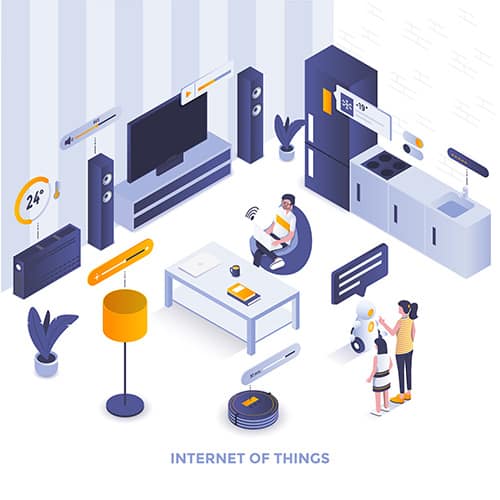Introduction:
Engineering inventions have played a significant role in shaping the world we live in today. The United States is renowned for its innovative and revolutionary engineering inventions that have transformed various industries. In this article, we will explore the best engineering invention ever made in the USA.
The best engineering invention ever made in the USA: The Internet
The Internet is undoubtedly the best engineering invention ever made in the USA. It is a global network of interconnected computers that allow users to access and share information across the world. The Internet has revolutionized the way we communicate, work, learn, and do business. It has become an essential part of our daily lives, and it is difficult to imagine life without it.
The Internet was initially developed by the United States Department of Defense in the 1960s as a means of communication during the Cold War. The project was called the ARPANET, and its aim was to create a decentralized communication network that could withstand a nuclear attack. The ARPANET was the foundation of the Internet that we know today.
How the Internet works
The Internet works by sending and receiving data packets between computers that are connected to the network. Data is sent in the form of binary code, which is a series of zeros and ones. The data packets are transmitted through a series of routers and switches until they reach their destination. The Internet is based on a set of protocols known as the Transmission Control Protocol/Internet Protocol (TCP/IP).
Advantages of the Internet
- Communication: The Internet has made it easier and faster to communicate with people across the world. Email, instant messaging, and social media platforms have made it possible to connect with anyone, anywhere, at any time.
- Information sharing: The Internet has made it easy to access and share information across the world. Websites, blogs, and online forums have made it possible to share knowledge and ideas with people across the globe.
- Online shopping: The Internet has revolutionized the way we shop. Online shopping has made it possible to buy products from anywhere in the world, at any time, without leaving our homes.
- Work from home: The Internet has made it possible for people to work from home. This has enabled companies to save on office space and has provided employees with more flexibility in their work schedules.
- Education: The Internet has revolutionized the way we learn. Online courses, educational videos, and e-books have made it possible to learn from anywhere in the world, at any time.
- Entertainment: The Internet has also revolutionized the entertainment industry. Streaming services like Netflix, Hulu, and Amazon Prime have made it possible to watch movies and TV shows on demand, without the need for cable or satellite TV.
- Healthcare: The Internet has also revolutionized the healthcare industry. Telemedicine has made it possible for doctors and patients to communicate remotely, which has improved access to healthcare services.
Impact of the Internet on society
The Internet has had a profound impact on society. It has transformed the way we live, work, and interact with each other. Some of the ways the Internet has impacted society include:
- Globalization: The Internet has made the world a smaller place. It has made it possible to connect with people across the world and has facilitated the growth of global trade and commerce.
- Democratization of information: The Internet has made it possible for anyone to access and share information. This has led to a democratization of knowledge and has empowered people to make more informed decisions.
- Social media: Social media platforms have transformed the way we interact with each other. They have made it possible to connect with people from all walks of life and have facilitated the growth of online communities.
- Cybercrime: The Internet has also facilitated the growth of cybercrime. Hackers and cybercriminals have used the Internet to steal personal and financial information, launch cyberattacks, and spread malware.
- Privacy concerns: The Internet has raised concerns about privacy. With so much personal information being shared online, there are concerns about how that information is being used and who has access to it.
- Digital divide: The Internet has created a digital divide between those who have access to it and those who do not. This has raised concerns about access to information, education, and job opportunities.
- Addiction: The Internet has also raised concerns about addiction. People can become addicted to social media, online gaming, and other online activities, which can have negative impacts on their mental and physical health.
Conclusion
The Internet is undoubtedly the best engineering invention ever made in the USA. It has transformed the way we live, work, and interact with each other. It has facilitated the growth of global trade and commerce, democratized knowledge, and empowered people to make more informed decisions. However, it has also raised concerns about privacy, cybercrime, the digital divide, and addiction. It is important to continue to innovate and improve the Internet while addressing these concerns to ensure that it continues to benefit society.
As Tim Berners-Lee, the inventor of the World Wide Web, said, “The web is more a social creation than a technical one. I designed it for a social effect — to help people work together — and not as a technical toy.”
References:
- Berners-Lee, T. (2010). Long Live the Web: A Call for Continued Open Standards and Neutrality. Scientific American, 303(6), 80–85. https://doi.org/10.1038/scientificamerican1210-80
- Cerf, V. G. (2005). The Internet: Past, Present and Future. ACM SIGCOMM Computer Communication Review, 35(3), 31–43. https://doi.org/10.1145/1070877.1070882
- Pew Research Center. (2021, April 7). Internet/Broadband Fact Sheet. Pew Research Center Internet & Technology. https://www.pewresearch.org/internet/fact-sheet/internet-broadband/
- World Economic Forum. (2020, September 15). The Internet’s impact on the world economy. World Economic Forum. https://www.weforum.org/agenda/2020/09/how-the-internet-changed-the-world-economy/
- Zickuhr, K., & Rainie, L. (2014, February 27). Pew Research Center. https://www.pewresearch.org/internet/2014/02/27/the-web-at-25-in-the-u-s/

